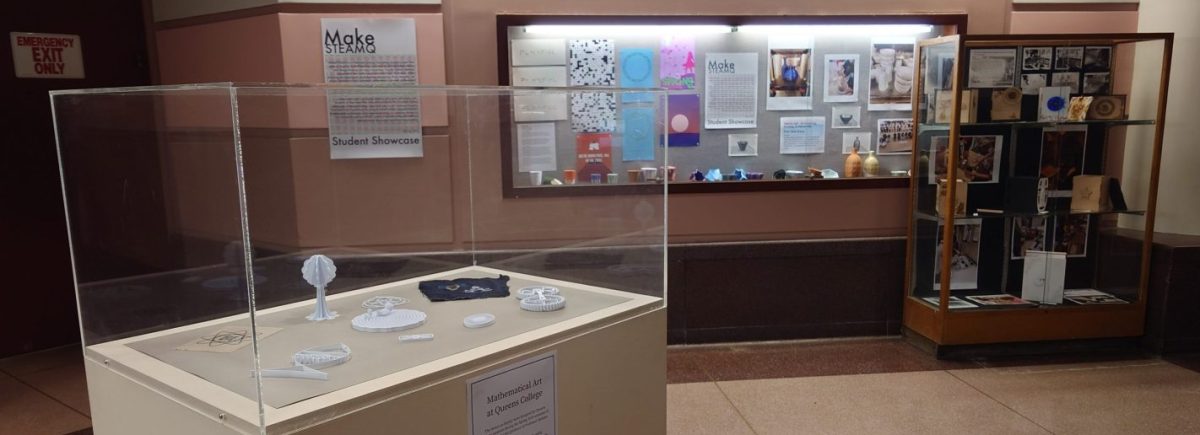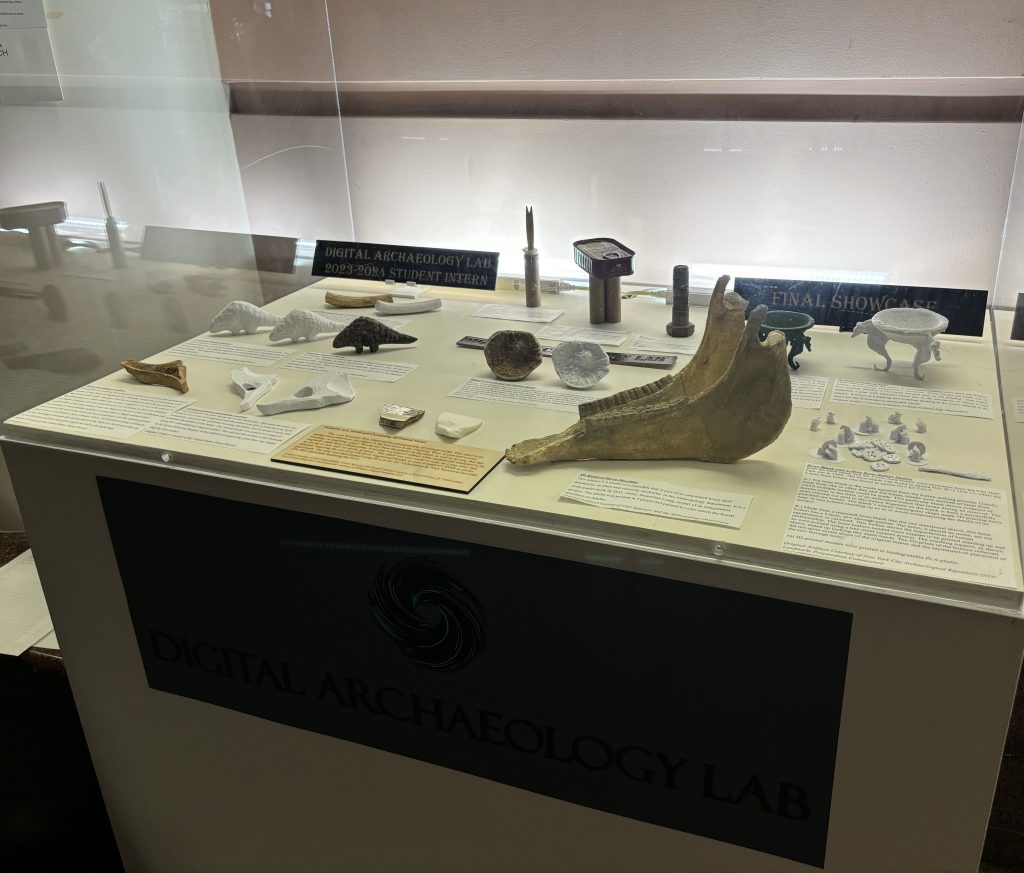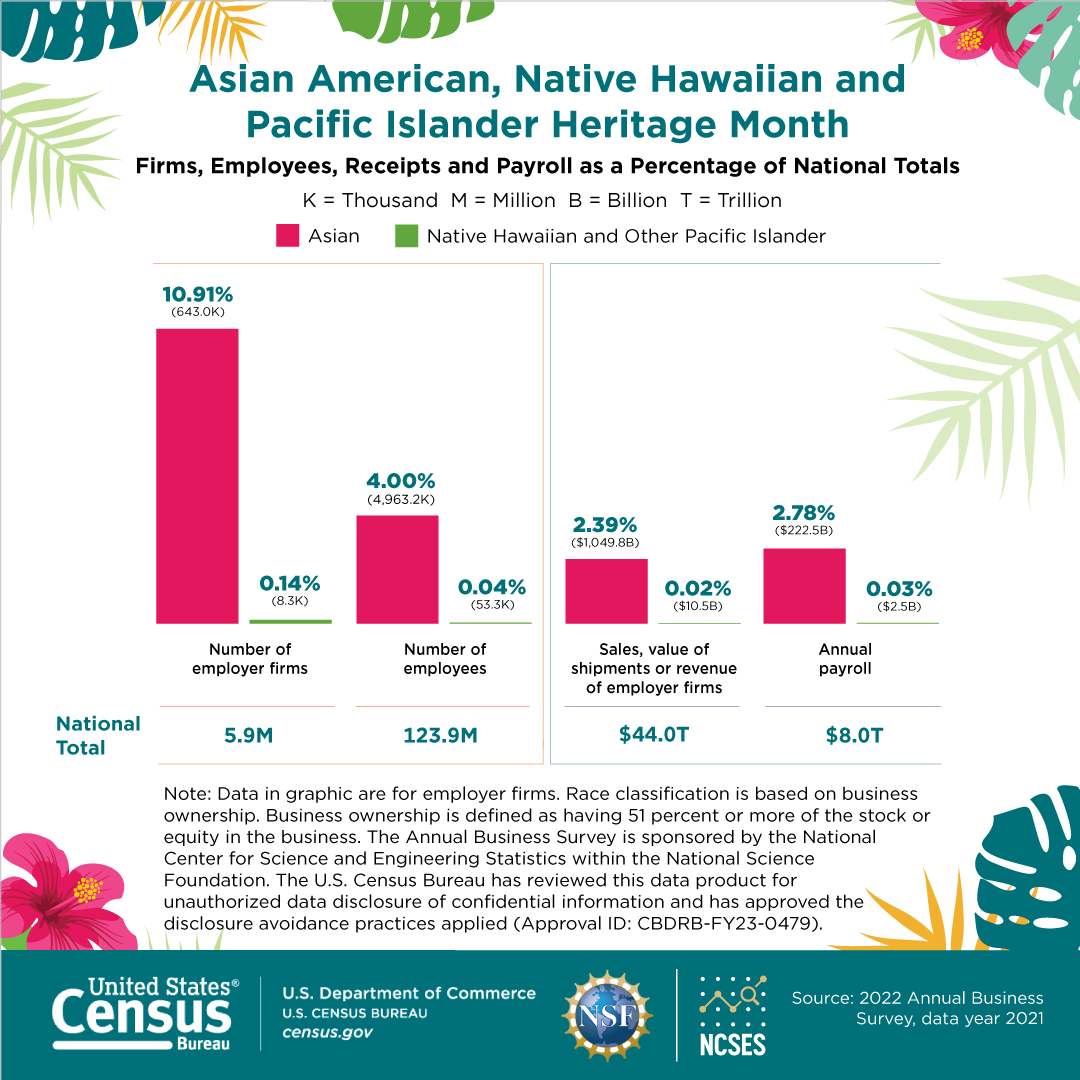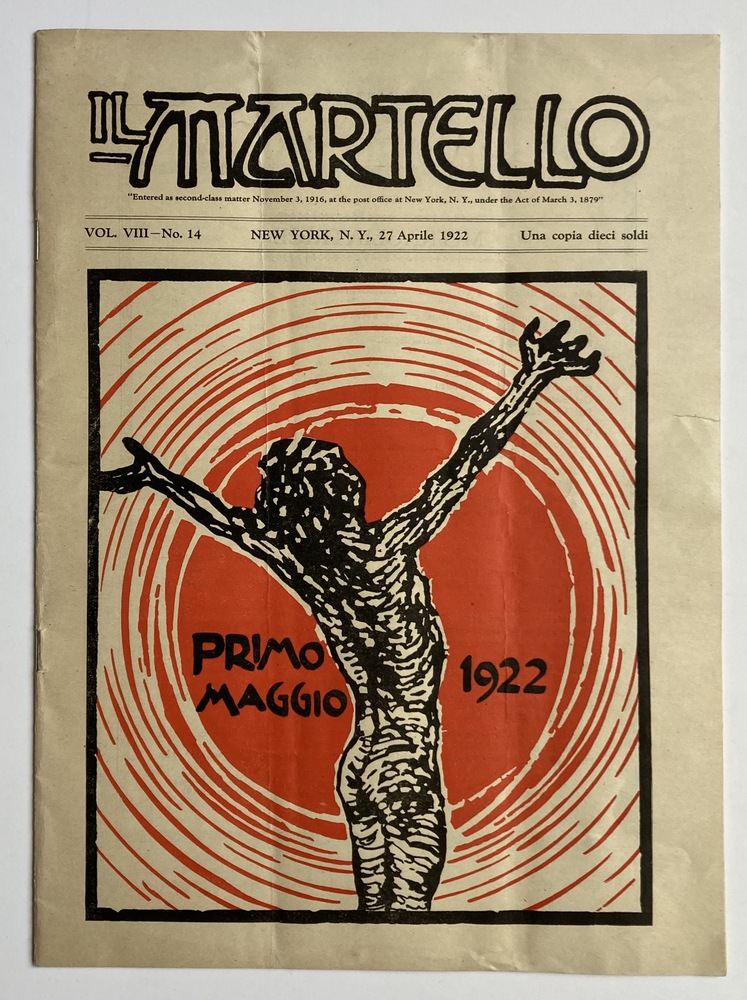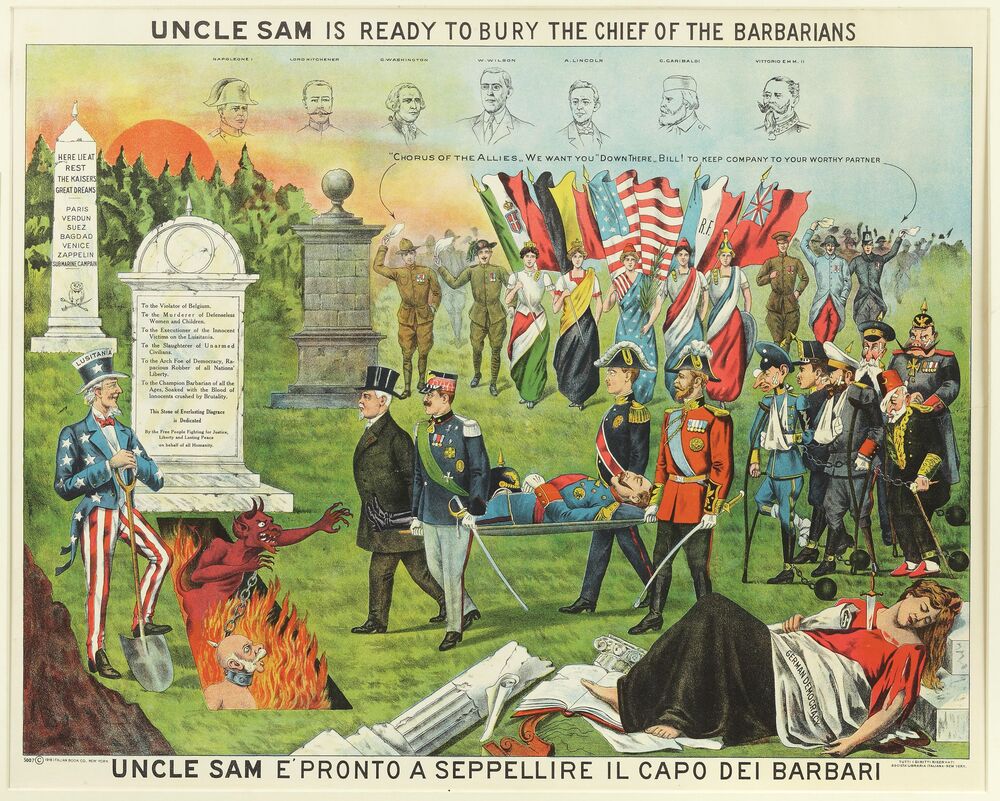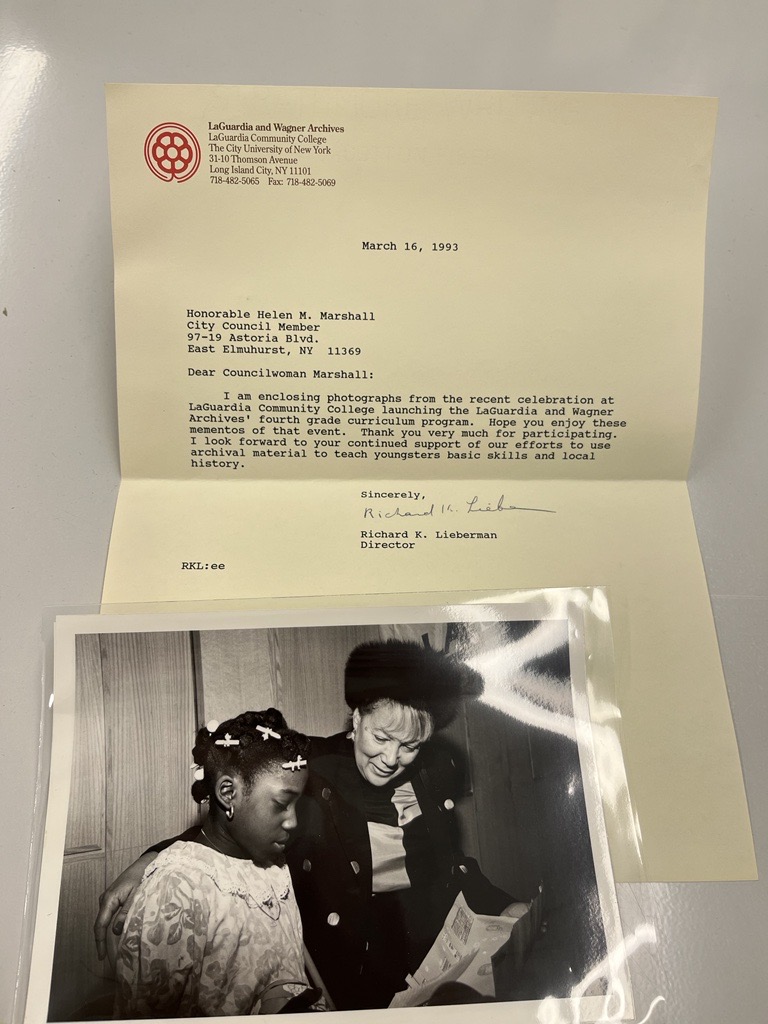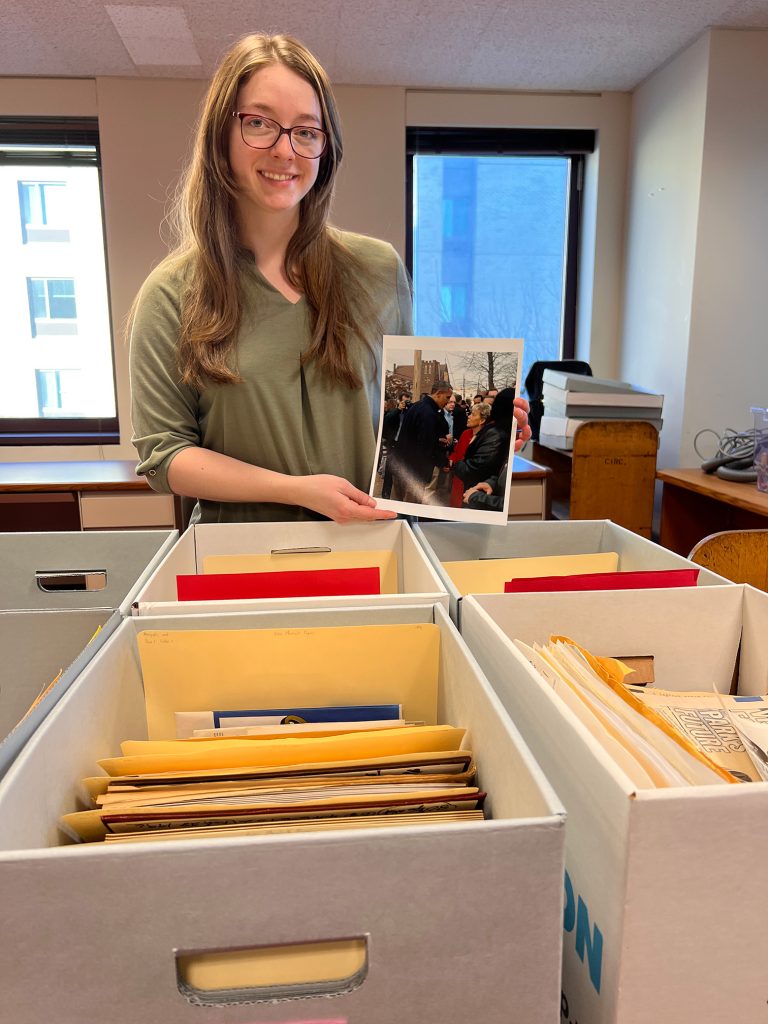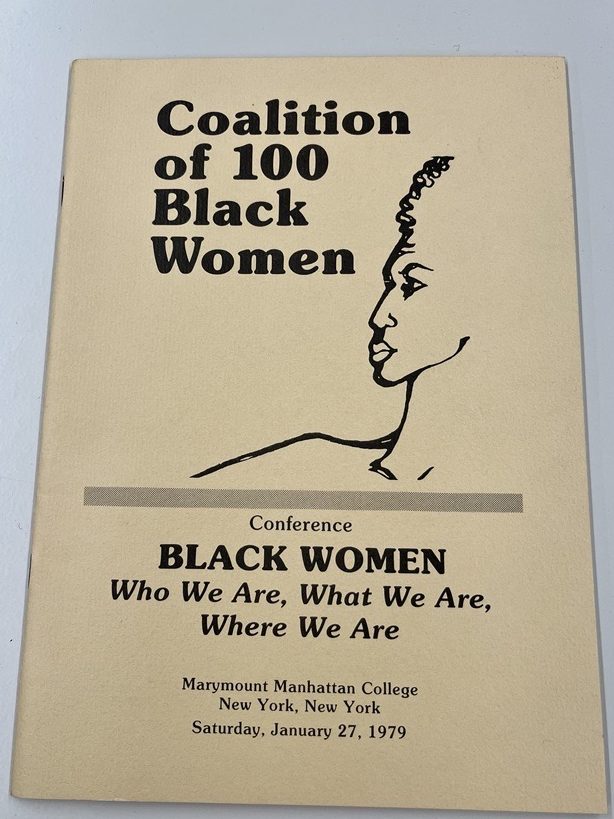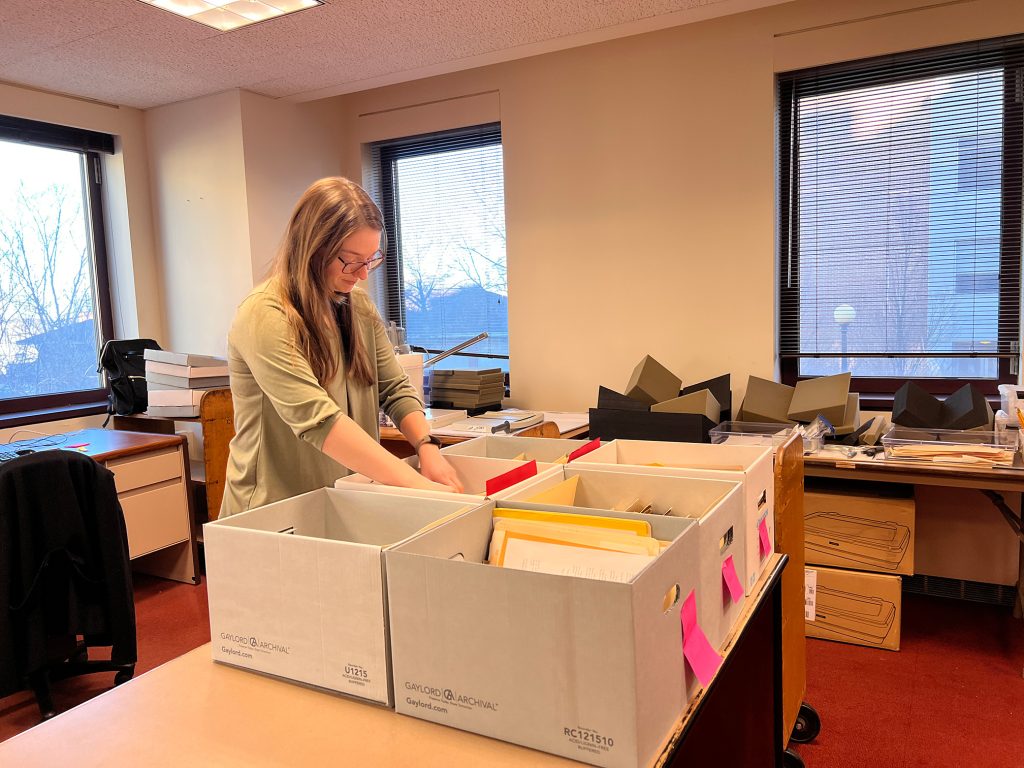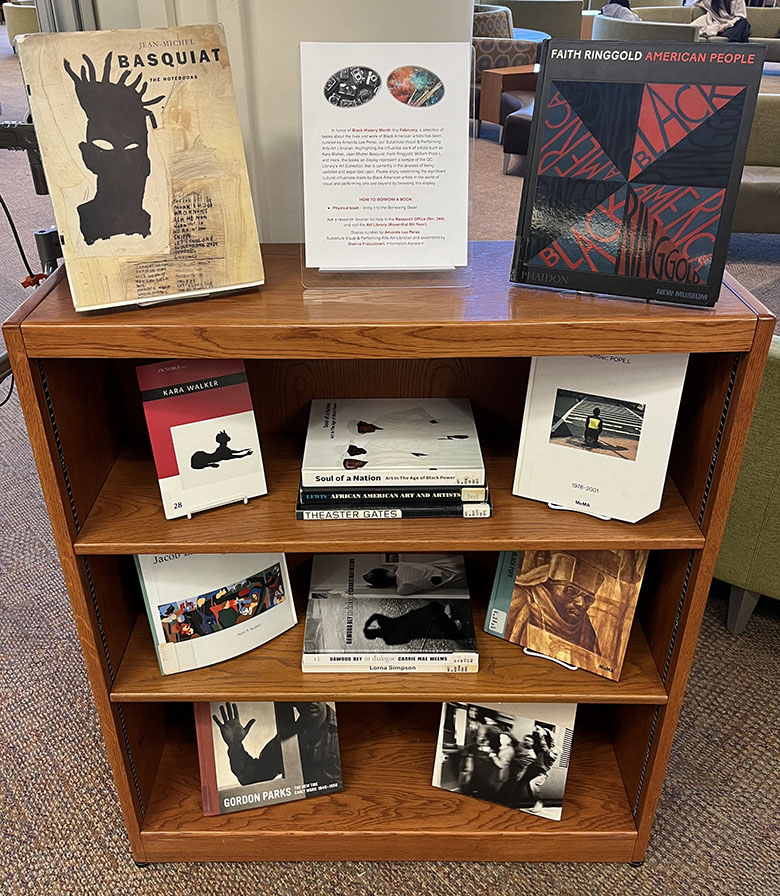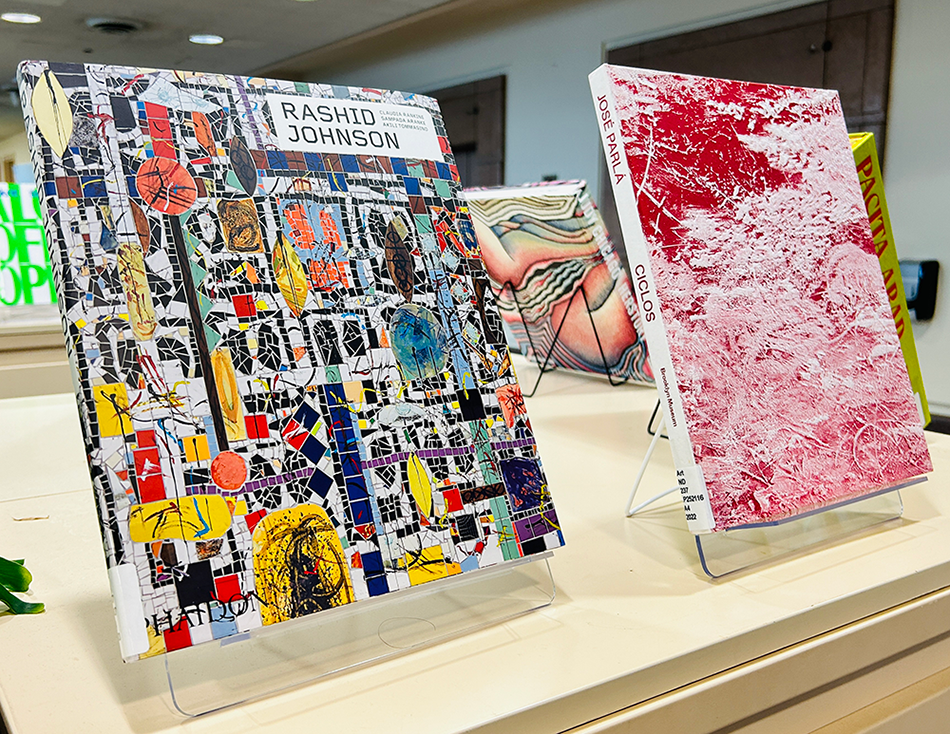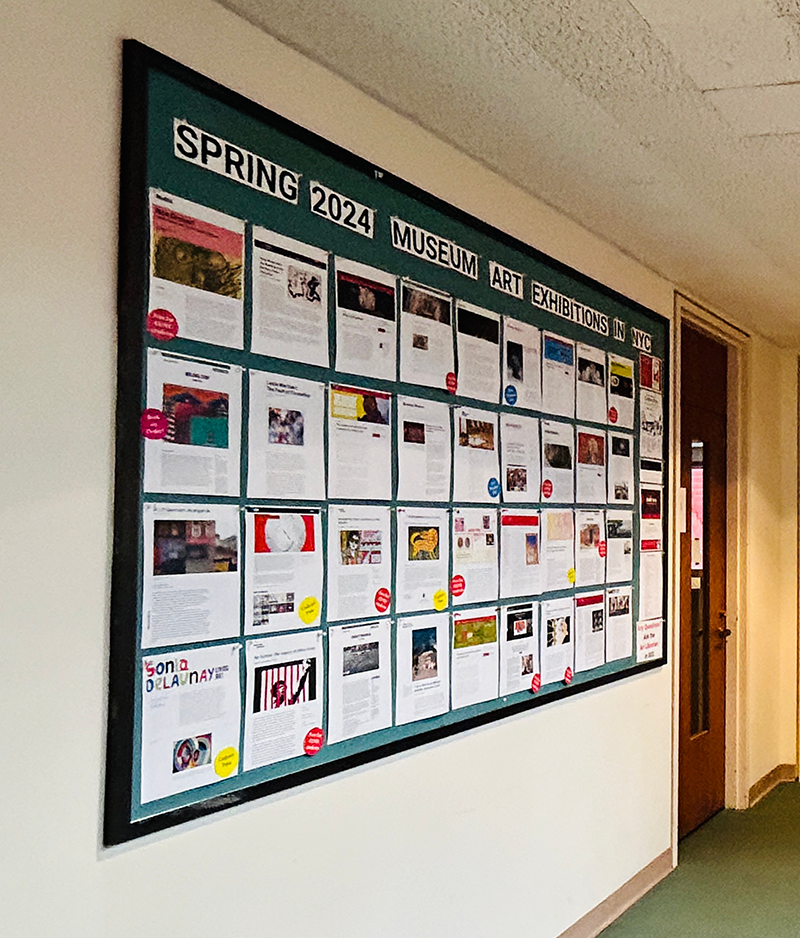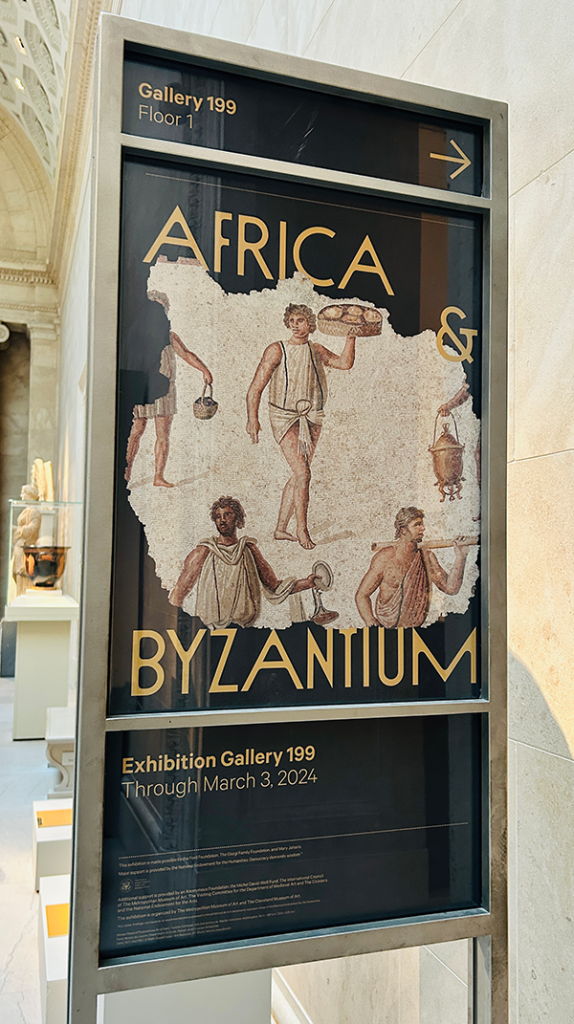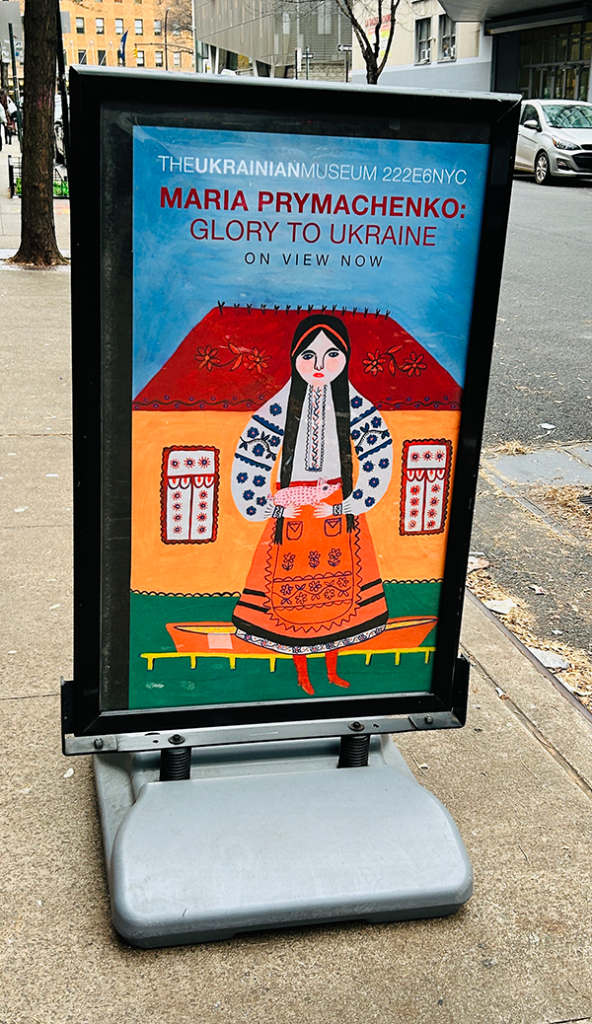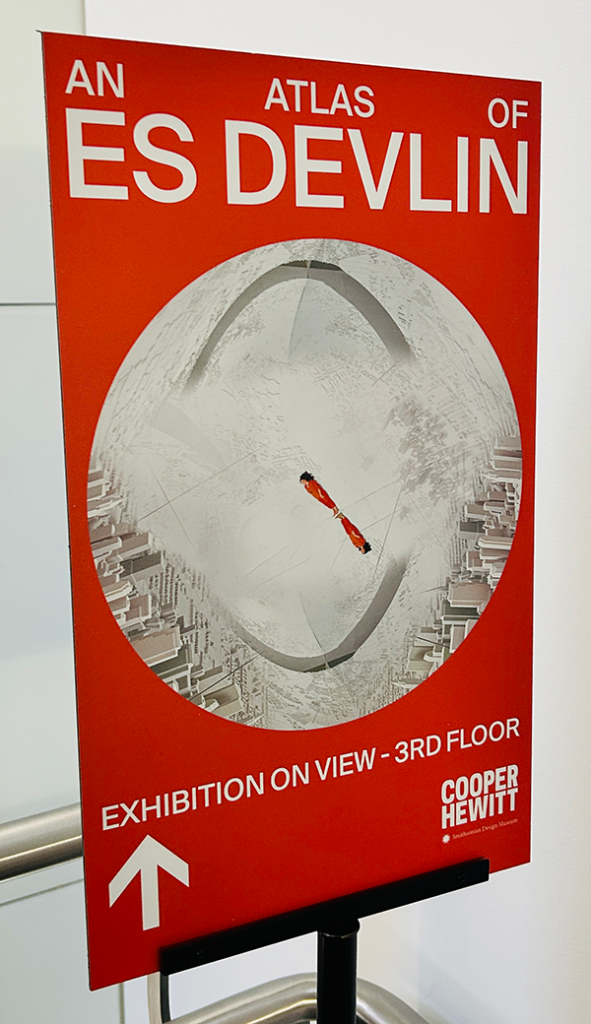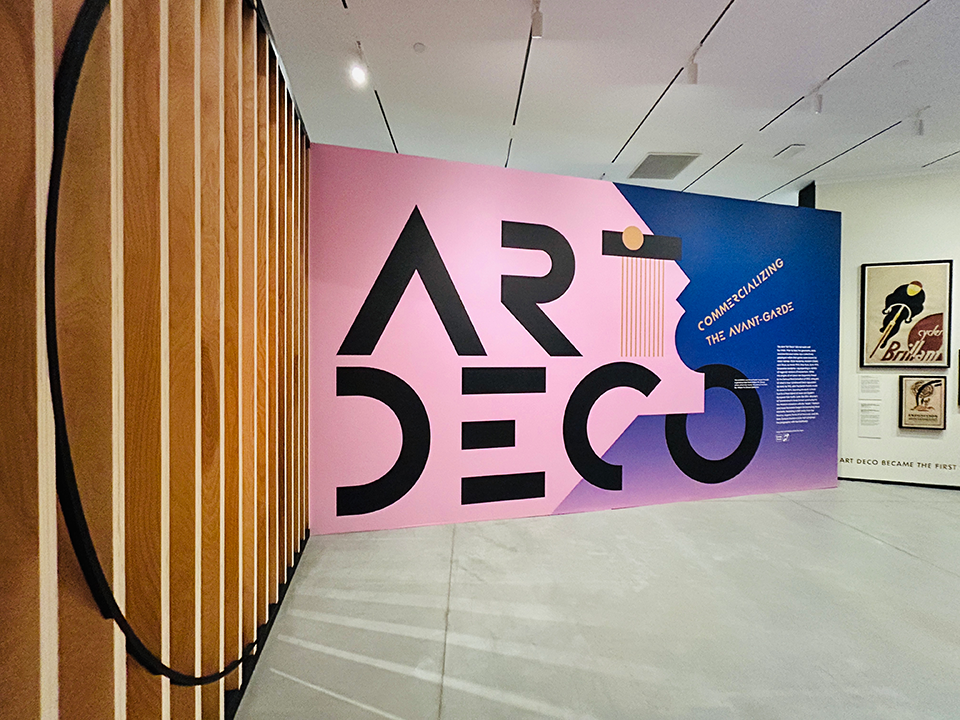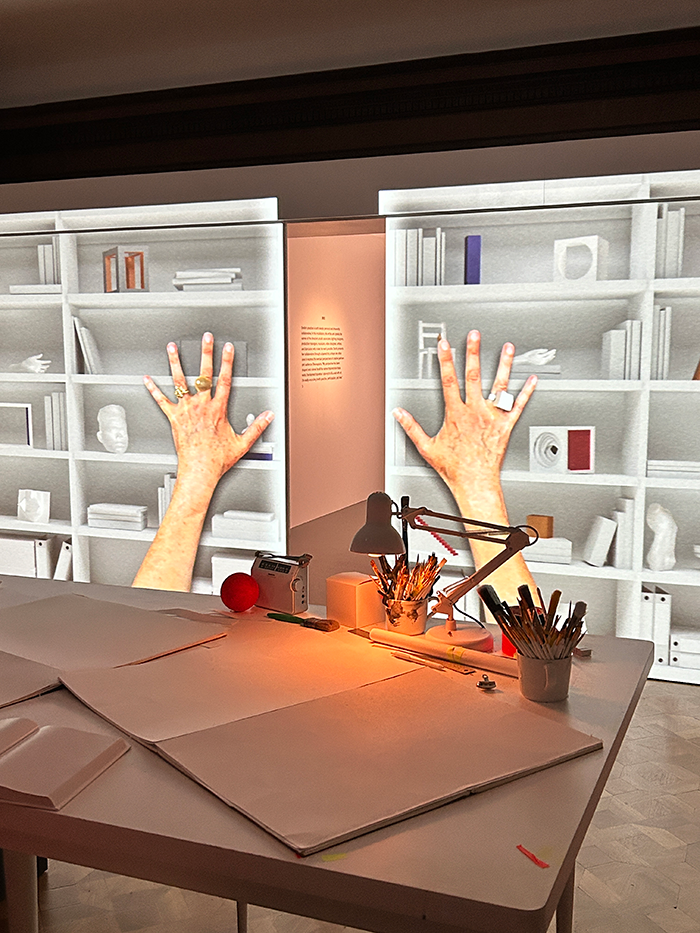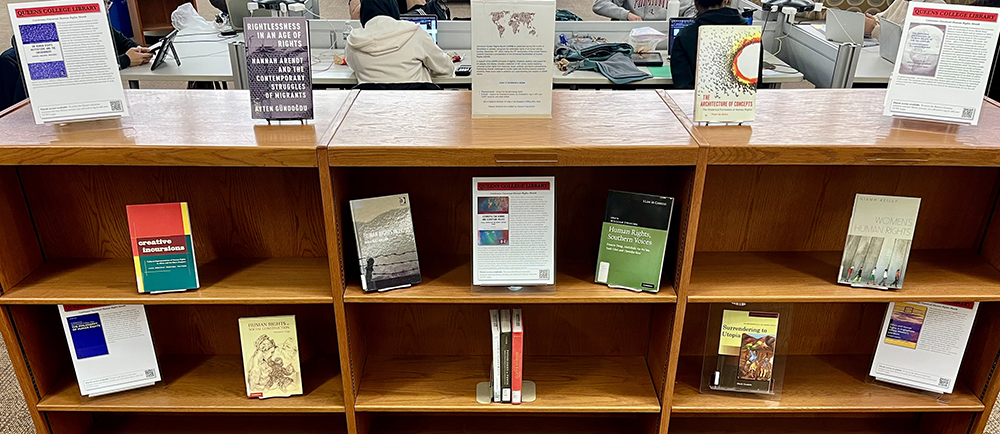By Gianna Fraccalvieri, Project Archivist
As a current student in the Graduate School of Library and Information Studies, working in the Queens College Library to process the Helen Marshall Papers over the past 5 months has been an invaluable learning experience for which I am incredibly grateful. Helen Marie Marshall (1929–2017) was an American politician and community organizer who served in the various elected positions of New York State Assemblymember, New York City Councilmember, and Queens Borough President between the 1980s and mid-2010s.
This collection has proven to be robust in scope and diverse in content, covering a wide range of historical events, social issues, and political eras throughout the twentieth and early twenty-first centuries. While the magnitude of this project posed practical challenges of adequately preserving, arranging, and describing the records, its vastness also provided amazing opportunities to view these archival traces of Marshall’s life and legacy from a variety of angles.
I am honored to share the completed finding aid for the Helen Marshall Papers with the Queens College community and beyond. The collection can be accessed by emailing Special Collections and Archives at QC.archives@qc.cuny.edu to schedule an appointment. You can also learn more about the collection by registering for the “Virtual Show and Tell” taking place online on September 19 from 4-5pm.
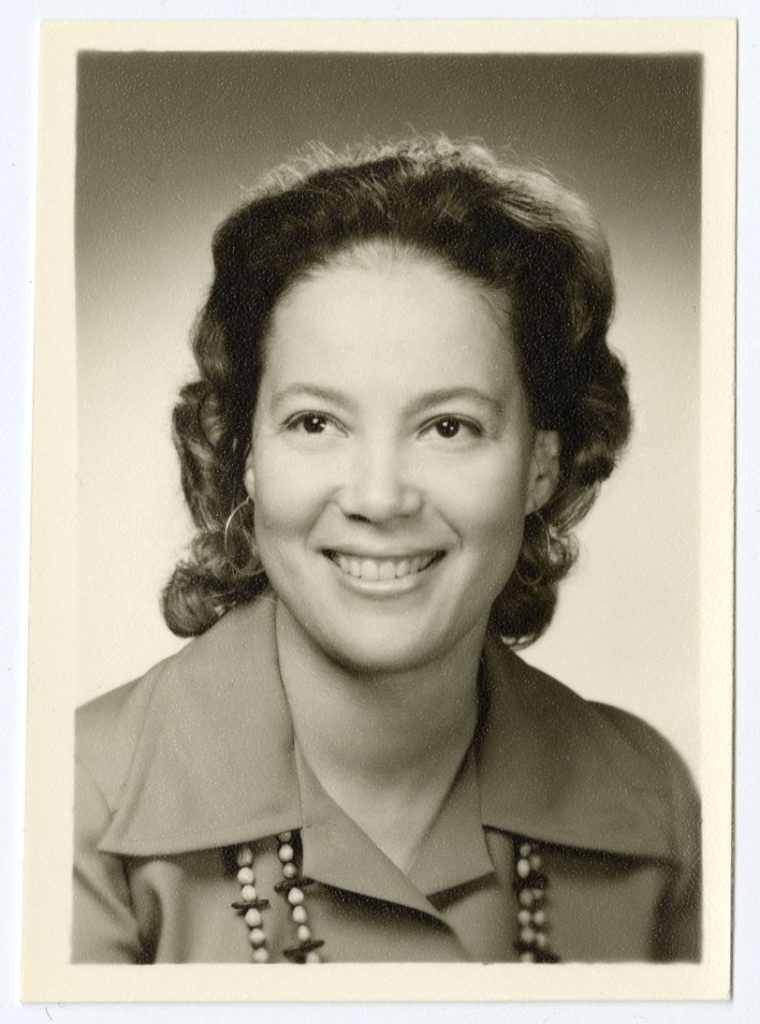

Composed of 35.75 linear feet of records produced between the 1920s and 2014, the Helen Marshall Papers document Marshall’s role as a community activist and elected official in New York City and State politics. The collection includes correspondence, project files, subject files, certificates, campaign ephemera, photographs, and audiovisual reels. Additionally, the Helen Marshall Papers include personal materials that chronicle the immigration story of Marshall’s Guyanese family. Overall, this collection reflects Marshall’s principal concerns of racial justice, women’s rights, public libraries and parks, health care, and senior citizens.

Amid the ongoing social injustice of municipal budget cuts to libraries and universities, Marshall’s legacy of activism in defense of institutions that provide public access to information and education inspires hope and resilience for the present-day struggle. As a co-founder and first director of the Langston Hughes Library in 1969 prior to her political career, Marshall was a strong advocate for public libraries throughout her life. This collection contains project files, correspondence, and photographs related to Marshall’s role in securing more funding for public libraries to enhance access to community resources in Queens and New York City at large. Similarly, this collection reflects Marshall’s career-long crusade to increase funding, equity, and inclusion among CUNY institutions. Marshall’s background as a public school teacher and Queens College alumna with a B.A. in education made supporting higher education through CUNY one of her top priorities.
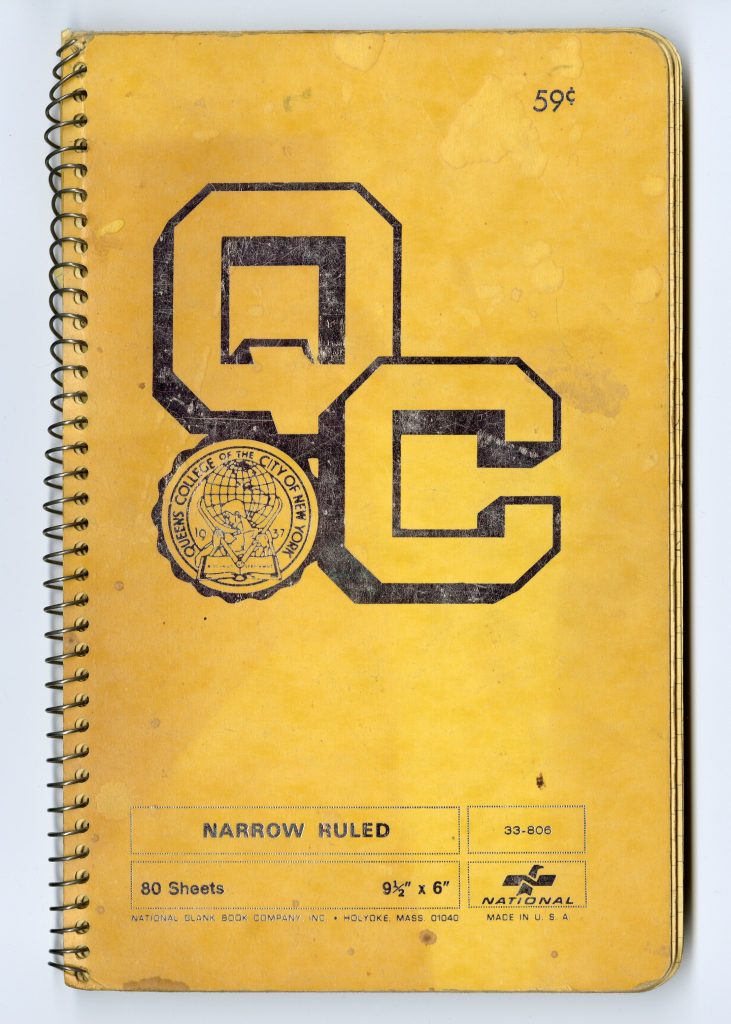
It has been a privilege to gain hands-on archival processing experience under the supervision of Annie Tummino, Head of Special Collection and Archives at Queens College Library (QCL). I would like to thank Annie for the time and expert guidance she shared with me to help complete this project, as well as archives staff members Caitlin Colban-Waldron and Reign McConnell for their advice and encouragement. I also extend my appreciation to the Documentary Heritage and Preservation Services for New York (DHPSNY) for providing the generous grant that allowed me to complete this project, as well as the entire staff and administration of QCL for their support of my professional development.
GIANNA N. FRACCALVIERI is a current graduate student pursuing a dual degree in Library Science and History with an Advanced Certificate in Archives at the Queens College Graduate School of Library and Information Studies (GSLIS). From January to June 2024, Gianna processed the Helen Marshall Papers as a Project Archivist at Queens College Special Collections and Archives. Gianna has been working in public and academic libraries across Queens and Long Island since 2021, and she aspires to work in archives full-time after graduating in the spring.
This project (Arranging and Describing the Helen Marshall Papers) was made possible in part by a grant from the Documentary Heritage Program of the New York State Archives, a program of the State Education Department.
Share Post:
